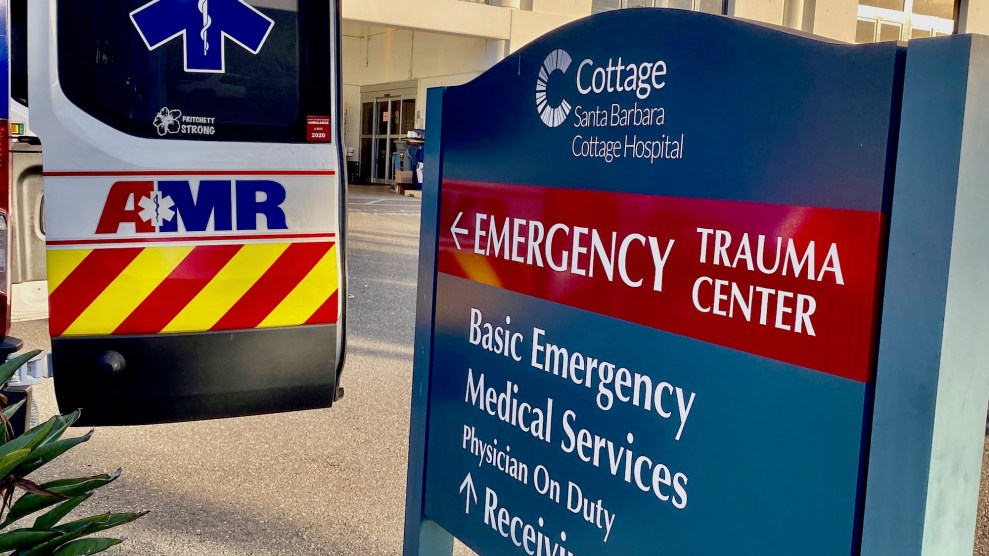
Santa Barbara Cottage Hospital, where COVID-19 patients are being treated in Santa Barbara County, CaliforniaAmy Katz/ZUMA
When health insurance companies set premiums for 2020, they weren’t counting on a global pandemic that could potentially cost them hundreds of billions of dollars. Now a new analysis estimates that premiums could increase substantially next year if insurance companies try to recoup those costs and Congress doesn’t provide emergency assistance.
Covered California, the state’s Obamacare marketplace, explains that insurance companies set prices for the commercial plans that individuals and employers buy “well before there was even any hint of the virus.” Peter V. Lee, Covered California’s executive director, told the New York Times, “No insurer, no state, planned and put money away for something of this significance.”
How much premiums are likely to rise is still highly uncertain. Covered California estimates that the nationwide costs related to COVID-19 for commercial plans could range from $34 billion to more than $250 billion. In 2020, premiums would have been between 2 percent and 21 percent higher if those costs had been factored in, according to the analysis. If companies try to make up for the 2020 costs next year, while also budgeting for more pandemic-related spending, premiums could increase anywhere from 4 percent to more than 40 percent across the nation.
“These increased costs could mean that many of the 170 million Americans in the commercial market may lose their coverage and go without needed care as we battle a global health crisis,” Lee said in a statement that accompanied the analysis. To prevent that from happening, Covered California is calling on Congress to increase assistance to individuals who buy health insurance through individual marketplaces, and to establish a temporary program to limit the costs of COVID-19 for insurers.
Others are projecting less dramatic cost increases. Edward Kaplan, a senior vice president at Segal, a company that advises clients on health benefits, told the Times, “We think claims are really going to drop off over the next month or two.” He estimated that even in New York, the hardest hit state in the nation, health insurance costs would only increase by 4 to 5 percent.
John Bertko, Covered California’s chief actuary, argued there is an urgent need for Congress to help stabilize insurance markets. “Given that insurers will be submitting 2021 rates in May and finalizing them around July 1, congressional action is needed very soon in order to affect 2021 premiums,” Bertko said in a statement. “While there is a lot of uncertainty with anything related to COVID-19, one thing we can be certain of is that the impact will be significant, and now is the time to take action.”

















